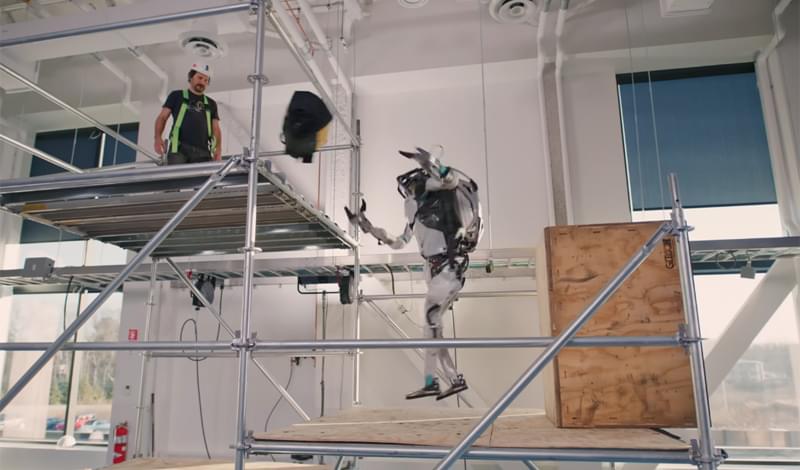Jan 19, 2023
New Technology Gives You Superman Powers
Posted by Jose Ruben Rodriguez Fuentes in category: futurism
Technology is becoming far more advanced than anyone has imagined, and this new tech can give users Superman’s best powers.
Technology is becoming far more advanced than anyone has imagined, and this new tech can give users Superman’s best powers.
The success that ChatGPT has had, at least in generating public interest, has had the inevitable consequence of prompting some writers to question its credentials and generally pour tepid if not actually cold water over what it can do. The latest of these is Will Knight writing in the January 13, 2023 edition of Wired. “ChatGPT Has Investors Drooling – but Can It Bring Home the Bacon?”.
In that article he makes two observations that merit closer attention, one of which I think has merit and the other of which I think harks back to a Dreyfus-like What Computers Still Can’t Do mentality. And both can be seen as examples of Schadenfreude.
Right at the end of the article Wright makes a legitimate point that he has gleaned from Phil Libin who was the CEO of the note-taking app Evernote from 2007–2015. Wright, summarising some of the downsides Libin anticipates, says One is that ChatGPT and other generative AI models are currently created by scraping content made by humans from the web, but are increasingly contributing to the text and images found online. All of these models are about to shit all over their own training data, he [Libin] says. ‘We’re about to be flooded with a tsunami of bullshit.’

Boston Dynamics has trained its Atlas robot to develop a new set of skills.
In this video, the humanoid robot manipulates the world around it – interacting with objects and modifying the course to reach its goal – pushing the limits of locomotion, sensing, and athleticism.
Computers and information technologies were once hailed as a revolution in education. Their benefits are undeniable. They can provide students with far more information than a mere textbook. They can make educational resources more flexible, tailored to individual needs, and they can render interactions between students, parents, and teachers fast and convenient. And what would schools have done during the pandemic lockdowns without video conferencing?
The advent of AI chatbots and large language models such as OpenAI’s ChatGPT, launched last November, create even more new opportunities. They can give students practice questions and answers as well as feedback, and assess their work, lightening the load on teachers. Their interactive nature is more motivating to students than the imprecise and often confusing information dumps elicited by Google searches, and they can address specific questions.
The algorithm has no sense that “love” and “embrace” are semantically related.
ChatGPT was hailed as one of 2022’s most impressive technological innovations upon its release last November. The powerful artificial intelligence (AI) chatbot can generate text on almost any topic or theme, from a Shakespearean sonnet reimagined in the style of Megan Thee Stallion, to complex mathematical theorems described in language a 5 year old can understand. Within a week, it had more than a million users.
ChatGPT’s creator, OpenAI, is now reportedly in talks with investors to raise funds at a $29 billion valuation, including a potential $10 billion investment by Microsoft. That would make OpenAI, which was founded in San Francisco in 2015 with the aim of building superintelligent machines, one of the world’s most valuable AI companies.
But the success story is not one of Silicon Valley genius alone. In its quest to make ChatGPT less toxic, OpenAI used outsourced Kenyan laborers earning less than $2 per hour, a TIME investigation has found.
Twenty years ago, following the initial sequencing of the human genome, geneticists started carrying out extensive genome-wide association studies to find genomic regions connected to human disease.
In addition to the DNA sequence, another stable level of molecular data created during development called epigenetic modifications also plays a role in disease risk.
Researchers have been examining these epigenetic changes for more than ten years to look for links to disease. More than a thousand of these epigenome-wide association studies have been published as of late.
Interactions with cosmic rays could make low-mass dark matter particles detectable by neutrino observatories. But an analysis of two decades’ worth of data shows no signs of the particles.
We use cookies on our website. Some of them are essential, while others help us to improve this website and your experience. If you are under 16 and wish to give consent to optional services, you must ask your legal guardians for permission. We use cookies and other technologies on our website. Some of them are essential, while others help us to improve this website and your experience. Personal data may be processed (e.g. IP addresses), for example for personalized ads and content or ad and content measurement. You can find more information about the use of your data in our privacy policy. You can revoke or adjust your selection at any time under Settings.
In this Review, Villeda and colleagues describe blood-to-brain communication from a systems physiology perspective, with an emphasis on blood-derived signals as potent drivers of both age-related brain dysfunction and brain rejuvenation.
Key Points. FMT from young mice restored lymphoid differentiative potential and improved the number and engraftment ability of aged HSCs. Lachnospiraceae and try.
